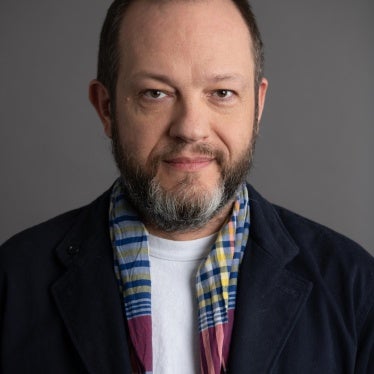(London) — Visitors to Hyde Park on a Sunday can see people standing on stepladders engaged in passionate debate with groups clustered around them. Speakers’ Corner is a symbol of Britain’s centuries old commitment to freedom of speech.
When it comes to free speech on the internet, however, Britain seems to have lost its way. Recent prosecutions for material posted on social media sites and internet forum raise troubling questions about the state of the law and limits of free expression. These prosecutions are causing dismay not just in the UK but among those battling internet censorship around the globe.
This week alone, a 19-year old man was sentenced to 12 weeks in a young offenders’ institution after posting comments, some sexual, about two girls who are missing and presumed dead. A 20-year old man was sentenced to 240 hours of community service for posting comments about dead soldiers on his Facebook page.
In March, a 21-year old man was sentenced to 56 days in prison for racist comments on Twitter about a seriously ill black footballer. In August, a 26-year old man was given a two-year suspended sentence and community service after posting racial insults on the website of Liverpool football club.
It should be well-established that freedom of expression includes the freedom to shock, offend, or disturb. Yet with the amplifying effect and legal novelty of social media, that basic truth is too often overlooked.
Even in cases involving incitement to violence, there are questions about whether the response of the authorities has been proportionate. Police arrested a 17-year boy in August for death threats on Twitter against a British Olympic swimmer, and cautioned rather than charging him. But four-year sentences for two men for incitement during the August 2011 riots were upheld by the Court of Appeal later that year, despite the lack of evidence that anyone was actually incited to riot as a result.
There is a growing recognition in Britain that these trends threaten free expression. In July, a panel of High Court judges, including the head of the judiciary, quashed the 2010 conviction of a 27-year old man – and the £1,000 fine -- for a tweet in which he jokingly threatened to blow up a local airport because of his frustration that it was closed because of bad weather. The ruling in what social media referred to as “Twitter Joke Trial” quoted Shakespeare for emphasis: “They are free to speak not what they ought to say, but what they feel.” But the ruling appears not to have deterred prosecutors and the lower courts from pursuing similar cases.
The top prosecutor in England and Wales, Kier Starmer, has said he is concerned about the potential chilling effect arising from prosecutions for offensive speech and this week began consultations with lawyers, police, free expression groups and social media companies, as part of a review of guidelines for such prosecutions.
Part of the problem is that the laws in place were designed for a different era. The offence the two men were prosecuted for this week – grossly offensive electronic communication – is part of the Communications Act 2003, passed when social media were in their infancy and Twitter and Facebook, which can quickly transform private thoughts into mass communication, did not exist. The offense dates back even earlier, though, to the 1930s and was designed to protect telephone operators.
The Director of Public Prosecutions will hopefully bring some much-needed restraint to the social media prosecutions, helping to delineate distinctions between material that is merely offensive, however so, and material that is part of a campaign of harassment, credible threat or clear incitement to violence. Prosecutors already have a duty to ensure that any prosecution is in the public interest and to protect free expression -- a right given particular emphasis in the domestic Human Rights Act.
Law magistrates and professional judges also need clearer guidance about the importance of free expression in a democratic society. But ultimately a change to the law is likely to be required to ensure that free speech is protected.
Hyde Park has long been famous. It must be puzzling and discouraging to people in less democratic countries who look to the UK as a model to see people here being sent to jail for speaking their minds. But with the right approach, Britain could do the same for speech on the internet as Speaker’s Corner did for speech on the streets.
..
Benjamin Ward is deputy director of the Europe and Central Asia Division at Human Rights Watch.








